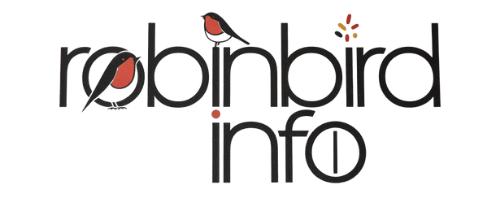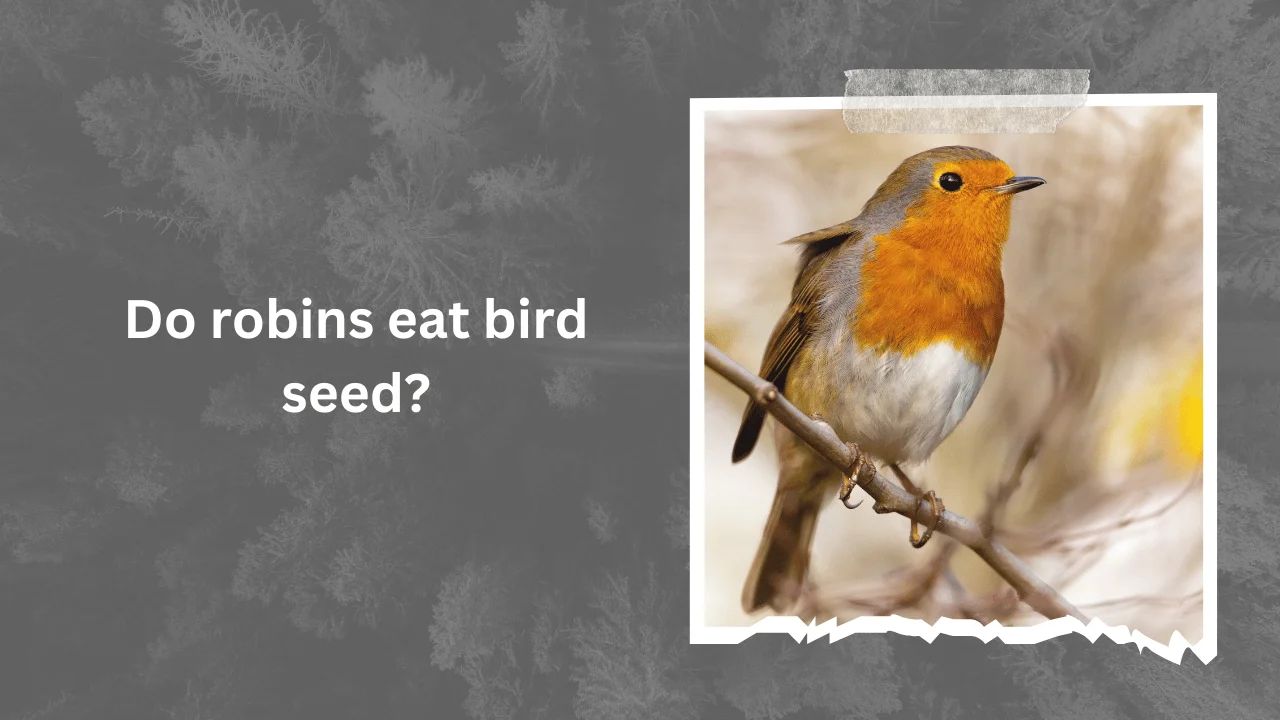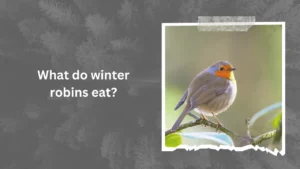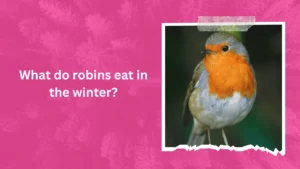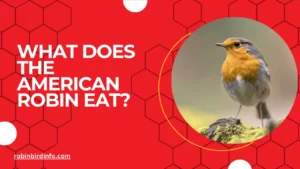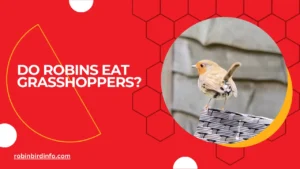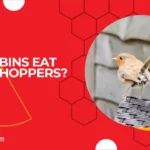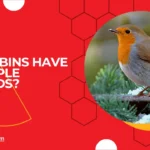Have you ever gazed out your window to see a Robin perched proudly on your bird feeder, stuffing its beak with seeds?
It seems like a perfect match: a cheerful songbird enjoying a free meal. But is the reality that simple? While Robins are frequent visitors to backyards, their relationship with birdseed is surprisingly complex.
These charming birds boast a diverse diet, feasting on a variety of insects, worms, and berries. But with winter’s chill and dwindling natural food sources, you might wonder if offering birdseed is a helpful addition to their menu.
This blog post dives deeper into the fascinating world of Robin feeding habits. We’ll explore what Robins naturally eat, their preferences for different types of seed, and the impact bird feeders have on their behavior.
So, the next time you see a Robin at your feeder, you’ll be armed with the knowledge to understand whether they’re truly enjoying the feast or just passing through!
Contents
- 1 The Robin’s Diet
- 2 Bird Seed Preferences
- 3 The Impact of Bird Feeders on Robin Behavior
- 4 The Role of Bird Feeders in Conservation
- 5 Creating a Bird-Friendly Environment
- 6 Conclusion
- 7 FAQ’s
- 7.0.1 Do Robins prefer certain types of birdseed?
- 7.0.2 Can I attract Robins to my feeder year-round?
- 7.0.3 Will feeding Robins make them dependent on humans?
- 7.0.4 Can bird feeders spread diseases among birds?
- 7.0.5 Should I remove bird feeders in the summer?
- 7.0.6 What other foods can I offer to Robins?
The Robin’s Diet
Robins are primarily insectivores, meaning they primarily feed on insects such as worms, beetles, and caterpillars.
They also consume fruits and berries during the summer and fall months. Their diet varies with the seasons, with a greater emphasis on insects during the breeding season when they need to feed their young.
Bird Seed Preferences
While Robins are not typically considered seed-eating birds, they may occasionally visit bird feeders, especially during harsh winter conditions. They are particularly attracted to suet and mealworms, which provide a high-energy food source.
Sunflower seeds, especially black oil sunflower seeds, are another popular choice for Robins. They may also consume berries and fruits offered in feeders, particularly during the winter months when natural food sources are scarce.
The Impact of Bird Feeders on Robin Behavior
Bird feeders can be a valuable resource for Robins, especially during harsh weather conditions when natural food sources are limited. However, it’s important to consider the potential competition with other bird species, such as sparrows and finches.
Overreliance on bird feeders can also lead to health issues for Robins, such as obesity and nutritional deficiencies. It’s essential to maintain a balanced diet for these birds, supplementing their natural food sources rather than relying solely on birdseed.
The Role of Bird Feeders in Conservation
Bird feeders can play a significant role in supporting Robin populations by providing supplemental food, especially during winter months. By offering a reliable food source, bird feeders can help Robins survive harsh weather conditions and increase their chances of successful breeding.
However, it’s crucial to minimize the negative impacts of bird feeders, such as the spread of disease. Regularly cleaning feeders and providing fresh seed can help reduce the risk of disease transmission.
Creating a Bird-Friendly Environment
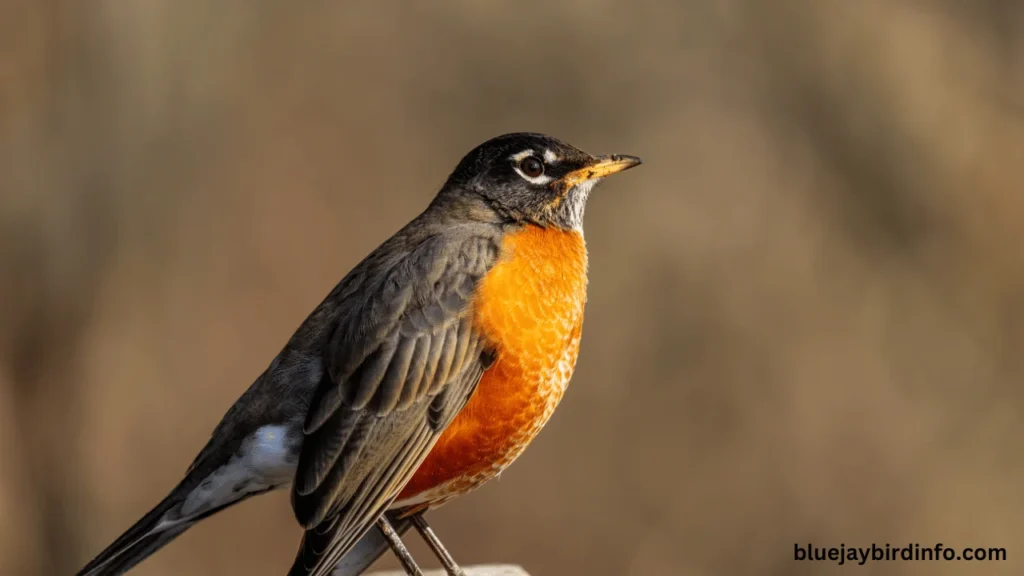
To attract and support Robins, it’s important to create a bird-friendly environment in your backyard. This involves planting native plants that provide food and shelter, such as berries, insects, and nesting sites.
Providing a clean water source, such as a birdbath, is essential for Robins to drink and bathe. Additionally, avoiding the use of pesticides and herbicides can help protect both Robins and their food sources.
By taking these steps, you can create a welcoming habitat for Robins and other bird species, contributing to bird conservation efforts.
Conclusion
While Robins are not primarily seed-eating birds, they may visit bird feeders, especially during harsh weather conditions or when natural food sources are scarce.
By understanding their dietary needs and providing appropriate food sources, we can help support these beautiful birds and enjoy their presence in our backyards.
It’s important to remember that bird feeders should be considered a supplemental food source and not a primary food source. By maintaining a balanced ecosystem and providing a variety of natural food sources, we can ensure the health and well-being of Robin populations.
FAQ’s
Do Robins prefer certain types of birdseed?
While Robins aren’t primarily seed-eaters, they may consume sunflower seeds, especially black oil sunflower seeds. However, they are more likely to be attracted to mealworms, suet, and fruits.
Can I attract Robins to my feeder year-round?
While Robins may visit your feeder year-round, their presence is more likely during colder months when natural food sources are scarce.
Will feeding Robins make them dependent on humans?
Overreliance on bird feeders can make birds less self-sufficient. It’s important to provide a balanced diet and avoid creating an artificial food source that discourages natural foraging behaviors.
Can bird feeders spread diseases among birds?
Yes, bird feeders can spread diseases, especially if they are not cleaned regularly. It’s important to clean and disinfect feeders to prevent the spread of illness.
Should I remove bird feeders in the summer?
While it’s not necessary to remove bird feeders completely, reducing the amount of supplemental food during the summer can encourage birds to forage naturally. This can help them develop strong foraging skills and reduce their reliance on artificial food sources.
What other foods can I offer to Robins?
In addition to birdseed, you can offer Robins fruits like grapes and berries, as well as mealworms. You can also plant native plants that produce berries and attract insects, which are natural food sources for Robins.
